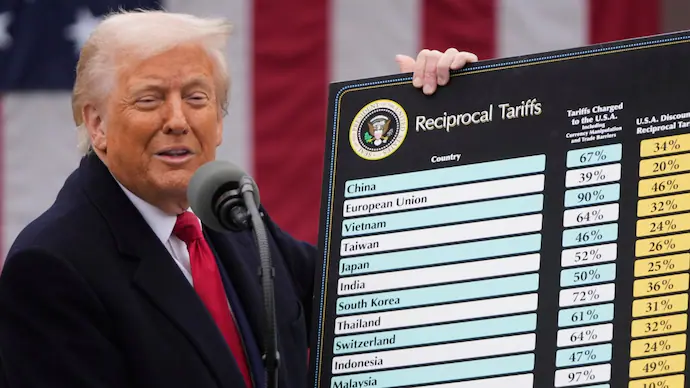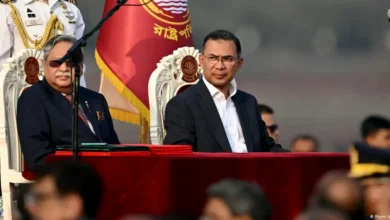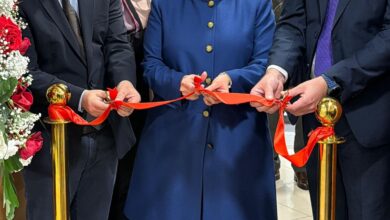
U.S. President Donald Trump has signed an executive order imposing reciprocal tariffs ranging from 10% to 41% on imports from more than 70 countries.
The move comes as part of the administration’s latest effort to address what it calls “unfair trade practices” and long-standing imbalances in global trade.
The tariffs, which will take effect seven days from the order’s signing, cover a wide range of countries, according to news reports.
Notably, Canada has been singled out for immediate action, with tariffs on Canadian goods rising from 25% to 35%— effective just hours after the announcement. The White House cited Canada’s alleged failure to tackle the illicit drug crisis and its retaliatory actions as reasons for the increase.
Among other countries affected, Syria faces the steepest tariff at 41%, followed by Myanmar and Laos at 40%, and Switzerland at 39%. India will see a 25% tariff applied to its exports, while Pakistan and Bangladesh face new duties between 15% and 30%.
Certain exceptions apply: shipments loaded by August 7 and arriving in the U.S. by October 5 will not be subject to the new rates, provided they were already in transit. European Union goods with U.S. duty rates above 15% will be exempt from these changes.
The executive order builds on a previous proclamation that declared persistent trade deficits a threat to U.S. national security. President Trump said the updated tariffs were based on intelligence and economic assessments, emphasizing that several countries had either failed to negotiate fairly or had not aligned with U.S. economic and security interests.
Negotiations with China continue, with a deadline of August 12 set to finalize a broader trade agreement. Meanwhile, trade talks with India remain stalled due to deeper geopolitical differences, including energy ties with Russia and participation in the BRICS bloc.












